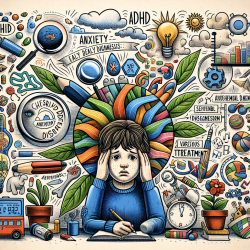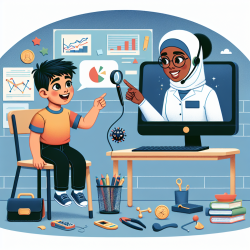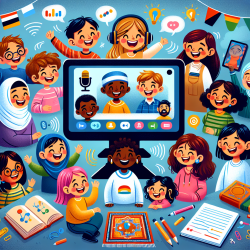Block play is a cherished activity among children, offering much more than just entertainment. It serves as a powerful therapeutic tool that can foster significant developmental gains. From enhancing mathematical skills to improving social interactions, block play holds the potential to transform the therapeutic landscape for children.
Understanding the Therapeutic Benefits of Block Play
Blocks are not just toys; they are versatile tools that cater to a child's innate desire to construct and explore. Research has shown that block play contributes to early mathematical development, including numerical knowledge and spatial reasoning. As children manipulate blocks, they engage in creative problem-solving and develop essential life skills such as perseverance and self-regulation.
Key Therapeutic Powers of Play
- Self-Expression: Blocks offer children the freedom to express their thoughts and emotions through creative building. They can create structures that symbolize their feelings or experiences, providing a safe outlet for self-expression.
- Creative Problem Solving: Engaging with blocks encourages children to experiment, make mistakes, and find solutions. This process enhances their cognitive flexibility and problem-solving abilities.
- Self-Regulation: Building with blocks requires planning and patience. Children learn to control impulses and develop frustration tolerance as they navigate the challenges of construction.
- Social Competence: Block play often involves collaboration with peers. Children learn to negotiate, compromise, and work together towards common goals, strengthening their social skills.
Practical Applications in Therapy
The versatility of block play makes it an ideal tool for various therapeutic settings. Here are some ways therapists can incorporate block play into their sessions:
Children with Trauma Backgrounds
For children who have experienced trauma, block play offers a non-threatening way to process difficult emotions. Building and deconstructing structures can symbolize control over chaotic experiences, aiding in trauma recovery.
Children with Social Communication Needs
LEGO-based therapy is particularly effective for children with autism or social communication difficulties. It uses the child's interest in LEGO bricks to promote social interaction and communication skills in a structured group setting.
Family Play Therapy
In family therapy sessions, block play can facilitate communication and problem-solving among family members. It allows each member to contribute creatively while fostering understanding and connection within the family unit.
A Case Study: Sam's Story
The transformative power of block play is illustrated through Sam's story. Born without lower extremities, five-year-old Sam faced numerous medical challenges. In therapy, he used blocks to express his fears and build scenarios where he could control outcomes. This process helped him manage anxiety about school safety drills by allowing him to rehearse responses in a safe environment.
The Future of Block Play in Therapy
The empirical support for block play highlights its potential across various developmental domains. However, its application in therapeutic settings remains underexplored. Future research could further validate its effectiveness in enhancing executive functioning and social learning among children.
The ability of blocks to foster growth in confidence and competence makes them an invaluable resource in therapy. As we continue to explore their potential, we open new avenues for helping children navigate their developmental journeys.
For more information, please follow this link.










